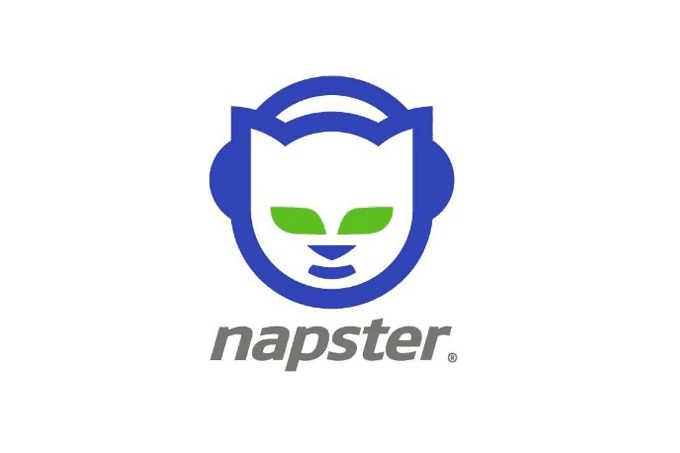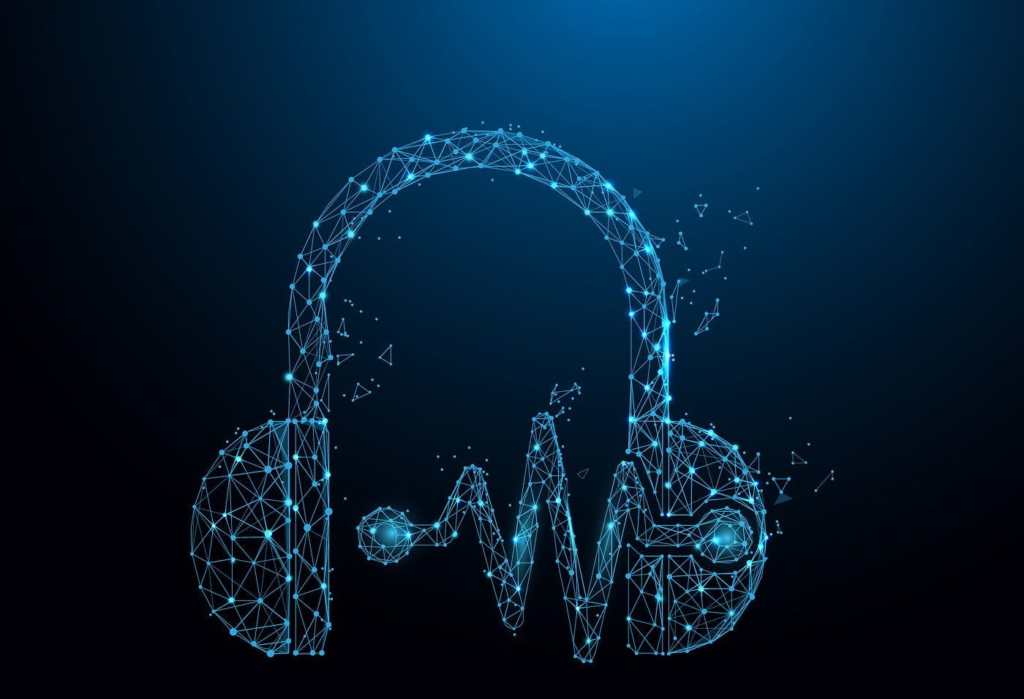Are you ready to dive into the exciting world of music streaming and explore how technology is reshaping the way we consume music? Join us on a journey through the evolution of digital music platforms, as we uncover the innovations that are revolutionizing the future of music streaming. From the early days of Napster to AI-generated playlists and virtual reality concerts, get ready to discover how tech is shaping the way we experience our favorite tunes. Let’s tune in and explore the dynamic landscape of music streaming innovations together!

The Early Days: How Napster Revolutionized Music Streaming
In the early 2000s, music consumption underwent a seismic shift with the emergence of Napster. This pioneering platform introduced the concept of peer-to-peer file sharing, allowing users to download music for free. Suddenly, music enthusiasts had access to an extensive library of songs at their fingertips.
Napster disrupted the traditional music industry by challenging the dominance of physical CDs and ushering in the era of digital downloads. It opened up a world of possibilities for listeners but also raised concerns about copyright infringement and piracy.
The ease and convenience offered by Napster changed how people discovered and consumed music. It gave rise to a new generation of tech-savvy music lovers who embraced this innovative way of accessing their favorite tunes.

Despite its controversial legacy, Napster played a pivotal role in laying the foundation for modern streaming services that have since transformed how we engage with music online.
Advancements in Technology Leading to Innovation
In the realm of music streaming, technological advancements have played a pivotal role in driving innovation and shaping the way we consume music. From the early days of MP3 downloads to the current era of seamless audio streaming, technology has continuously evolved to meet the demands of music enthusiasts worldwide.
The advent of high-speed internet connectivity paved the way for platforms like Spotify and Apple Music to offer vast libraries of songs at our fingertips. The development of sophisticated algorithms enabled these services to provide personalized recommendations tailored to individual preferences, enhancing user experience significantly.
Furthermore, advancements in artificial intelligence have revolutionized how we discover new music. AI-powered recommendation systems analyze listening habits and patterns to suggest tracks that resonate with users’ tastes, expanding their musical horizons effortlessly.
As technology continues to progress rapidly, we can expect even more exciting innovations on the horizon, further transforming the landscape of digital music consumption.
Rise of Legal Music Streaming Services: Spotify, Apple Music, and Pandora
Gone are the days of illegal downloads and pirated music. Legal streaming services like Spotify, Apple Music, and Pandora have transformed the way we listen to music. With vast libraries at our fingertips, users can access millions of songs instantly.
Spotify’s user-friendly interface and personalized playlists have made it a favorite among music enthusiasts. Apple Music’s integration with Siri offers seamless voice-controlled navigation. Meanwhile, Pandora’s algorithmic approach to radio stations caters to those looking for curated listening experiences.
These platforms not only benefit listeners but also support artists by providing a new revenue stream through royalties from streams. As these legal streaming services continue to evolve with features like offline listening and high-quality audio options, they shape the future of music consumption for both creators and consumers alike.
Personalized Music Streaming Recommendations Using AI
Imagine turning on your music streaming service and instantly being greeted by a playlist perfectly tailored to your unique tastes. Thanks to the power of artificial intelligence (AI), personalized music recommendations have become a game-changer in the way we discover new songs and artists.
By analyzing your listening habits, favorite genres, and even mood preferences, AI algorithms can curate playlists that feel like they were handpicked just for you. Whether you’re in the mood for upbeat tunes to energize your workout or soothing melodies for a relaxing evening at home, AI-powered recommendations ensure that there’s always something perfect playing.

Gone are the days of endlessly scrolling through vast music libraries trying to find something you’ll enjoy. With AI technology constantly learning and adapting to your preferences, discovering new music has never been easier or more enjoyable. It’s like having your own personal DJ who knows exactly what song to play next based on your individual taste profile.
The future of personalized music recommendations using AI holds endless possibilities for enhancing our listening experience and introducing us to tracks we may have never discovered otherwise. Embracing this innovative technology opens up a world of musical exploration right at our fingertips.
Impact of Social Media on Music Discovery and Sharing
Social media has transformed the way we discover and share music. Platforms like Instagram, TikTok, and Twitter have become powerful tools for artists to connect with fans directly. From viral challenges to intimate live streams, social media allows musicians to engage with their audience in real-time.
Music discovery has been revolutionized by algorithms that recommend songs based on our interests and listening habits. Sharing playlists on platforms like Spotify or sharing concert experiences on Facebook has made it easier than ever for music lovers to spread the word about their favorite artists.
The immediacy of social media means that trends can skyrocket overnight, propelling unknown artists into superstardom with just one catchy tune or dance challenge. In a world where attention spans are short and content is endless, social media gives musicians a platform to capture fleeting moments of fame and turn them into lasting careers.
Impact on Artists and the Music Industry
The impact of music streaming on artists and the music industry has been profound. With the shift towards digital platforms, musicians now have new avenues to reach a global audience. However, this transition has also posed challenges as artists navigate through the complexities of royalty payments and fair compensation.
Streaming services have altered the way artists release music, focusing more on singles and EPs rather than full albums. This change in consumption patterns has forced artists to adapt their creative process to cater to shorter attention spans.
Moreover, data analytics provided by streaming platforms offer valuable insights for artists to understand listener preferences better. This information can influence future releases and marketing strategies, ultimately shaping the direction of an artist’s career.
On the flip side, some argue that streaming services undervalue music content and diminish album sales revenue significantly. As technology continues to evolve, finding a balance between accessibility for listeners and fair compensation for creators remains a crucial issue within the music industry landscape.
Advancements in Technology: Virtual Reality Concerts and AI-generated Music
Advancements in technology have revolutionized the music industry, bringing immersive experiences to fans worldwide. Virtual reality concerts transport audiences into a digital realm where they can interact with their favorite artists like never before. Imagine standing front row at a concert from the comfort of your own home!
AI-generated music is another exciting development reshaping how music is created and consumed. With artificial intelligence analyzing data patterns, new melodies and beats are generated, pushing musical boundaries beyond human imagination. This fusion of technology and creativity opens up endless possibilities for artists to experiment and innovate.

The marriage of virtual reality concerts and AI-generated music holds tremendous potential in shaping the future of live performances and musical compositions. As technology continues to evolve, we can expect even more groundbreaking developments that will redefine the way we experience music forever.
Challenges and Controversies Surrounding Music Streaming
As the music streaming industry continues to grow, it faces a myriad of challenges and controversies that shape its landscape. One major concern is the issue of fair compensation for artists and songwriters, with debates arising over royalty rates and how revenue is distributed. This has led to tensions between streaming platforms, record labels, and musicians.
Another challenge is the impact on physical album sales and traditional music distribution channels. Some argue that streaming services devalue music by promoting quantity over quality, affecting album sales and overall revenue streams for artists.
Additionally, there are ongoing discussions about data privacy and user information within these platforms. Concerns have been raised regarding how listener data is collected, stored, and utilized by streaming services for targeted advertising purposes.
Moreover, copyright infringement remains a contentious issue in the digital age as unauthorized sharing of music continues to be a problem despite efforts to combat piracy through legal means.
Navigating these challenges will be crucial in shaping the future of music streaming and ensuring that all stakeholders are fairly represented in this evolving landscape.
The Future of Music Streaming and its Potential Impact on Artists and Listeners
As technology continues to advance, the future of music streaming holds exciting possibilities for both artists and listeners alike. With innovations like AI-generated music and virtual reality concerts on the horizon, the way we experience music is evolving rapidly. Artists now have more opportunities to connect with their audience in unique ways, breaking traditional boundaries.
For listeners, this means a more personalized and immersive music experience. The ability to discover new artists tailored to individual preferences through AI-driven recommendations will reshape how we explore music. Moreover, virtual reality concerts offer a new dimension of live performances from the comfort of our homes.
These advancements not only transform how music is consumed but also present challenges for artists in terms of revenue generation and copyright issues. However, as technology continues to shape the industry, embracing these changes could lead to a more vibrant and dynamic musical landscape for all involved.
Conclusion: Embracing the Evolution of Music Consumption
As technology continues to advance and reshape the way we consume music, it’s essential for artists, listeners, and industry professionals to embrace the evolution of music consumption. The innovations in music streaming have not only widened access to a vast library of songs but have also revolutionized how we discover new music and interact with our favorite artists.
With the rise of AI-driven personalized recommendations, virtual reality concerts, and AI-generated music, the future of music streaming holds immense potential for further growth and creativity. While challenges and controversies exist surrounding royalty payments and fair compensation for artists, these issues can be addressed through collaboration between stakeholders in the industry.
As we navigate this digital age of audio streaming innovation and evolving digital platforms, it is crucial to adapt to these changes positively. By staying open-minded towards technological advancements in music streaming, we can create a more inclusive space for diverse voices in the music industry while providing listeners with unparalleled access to their favorite tunes. Embracing this transformation will ultimately lead us towards a more vibrant and interconnected musical landscape where creativity knows no bounds.
For more such content, keep visiting QAWire


